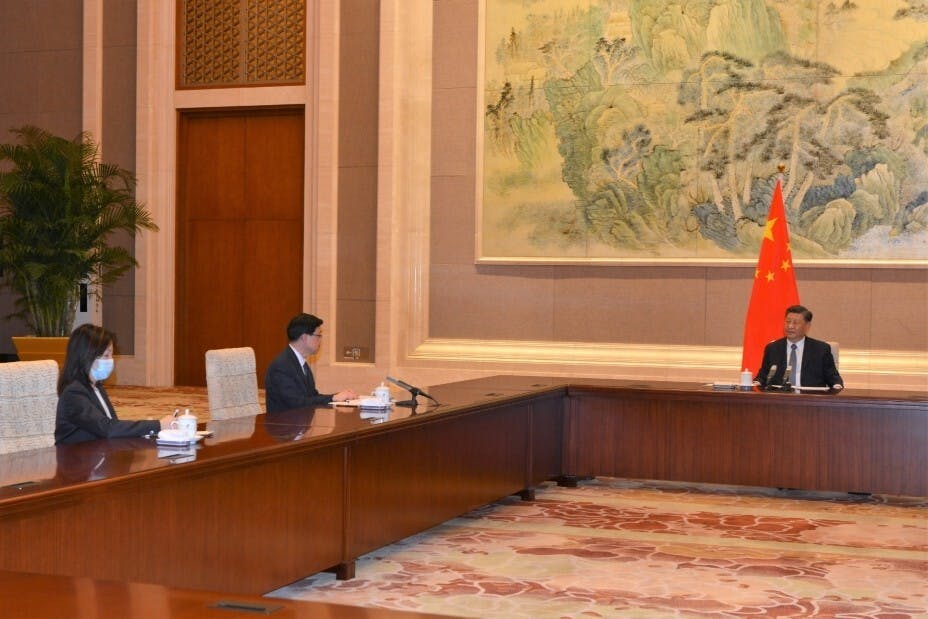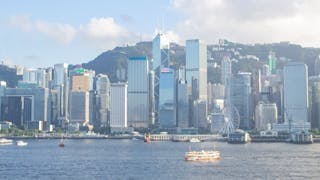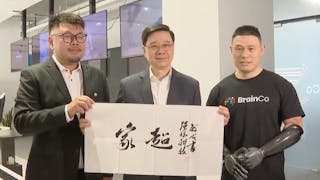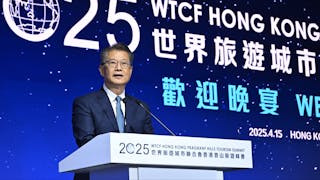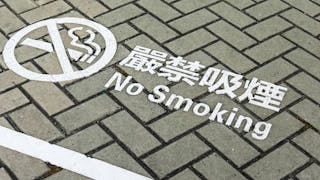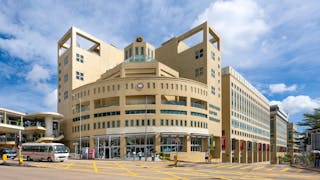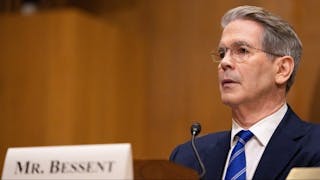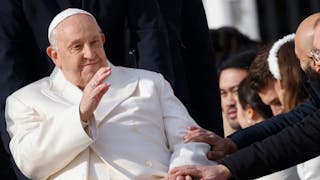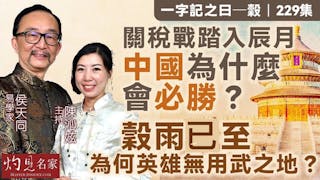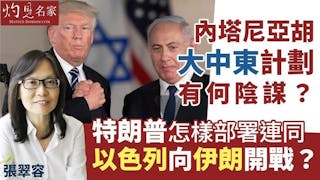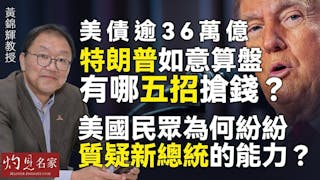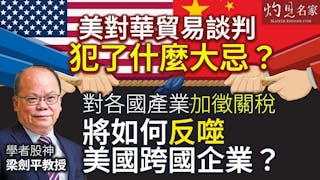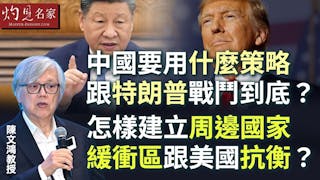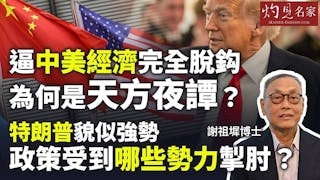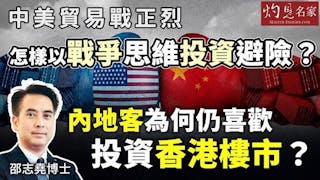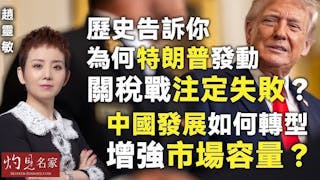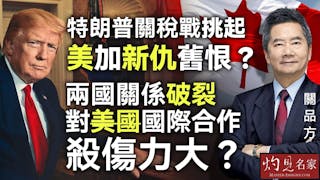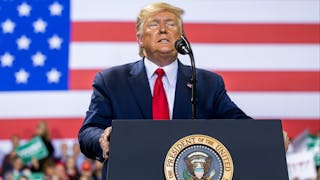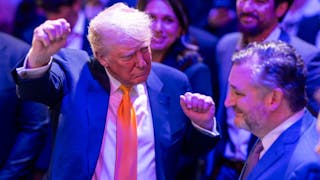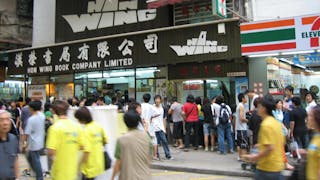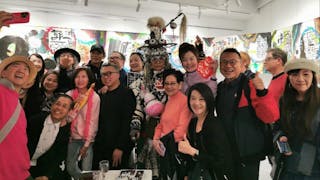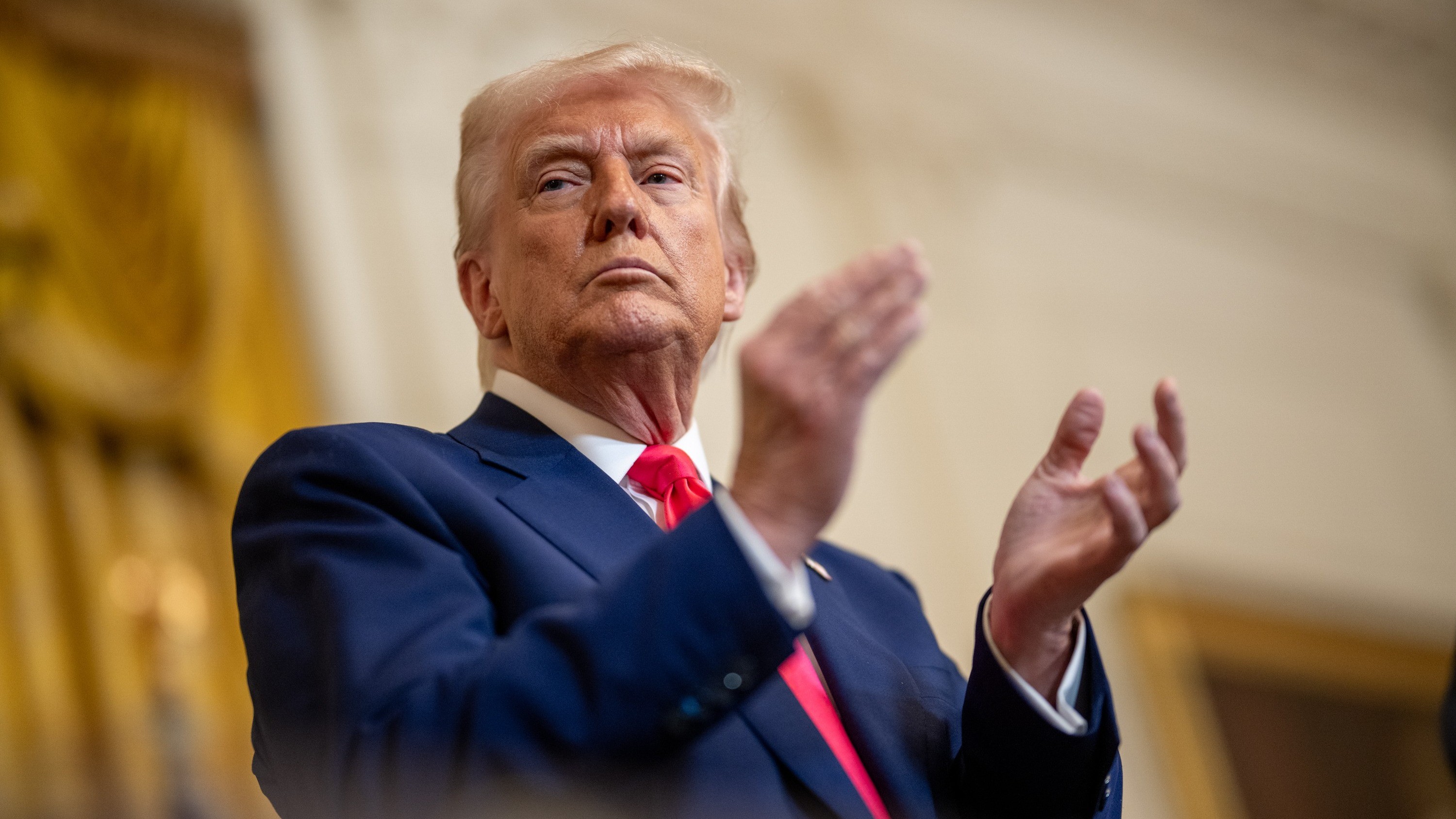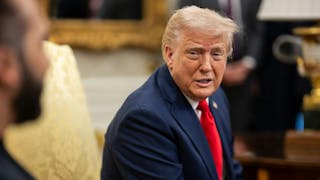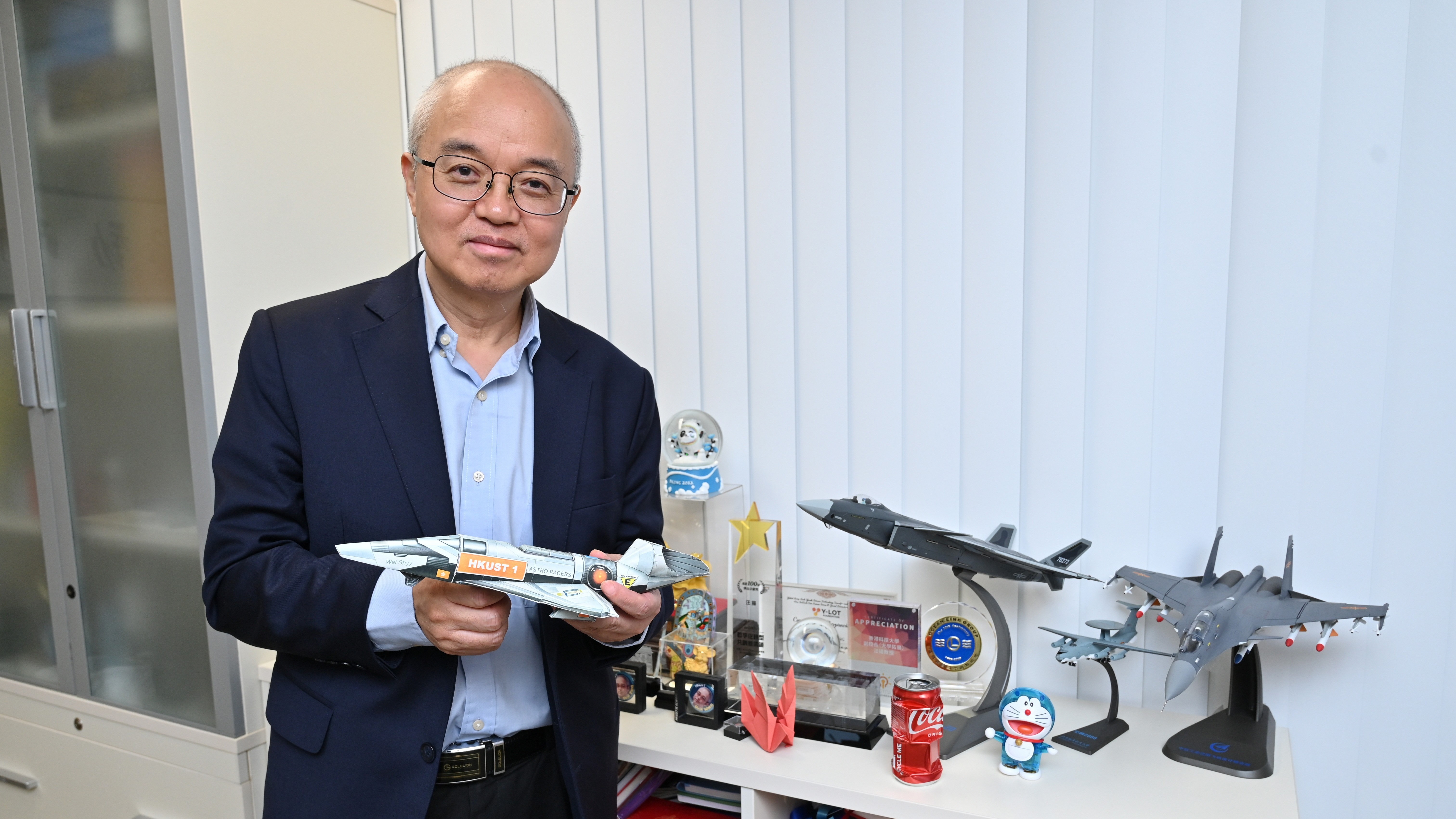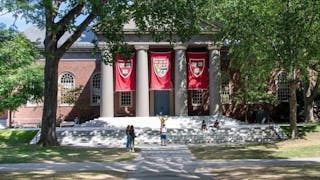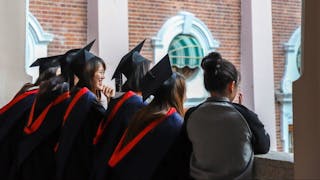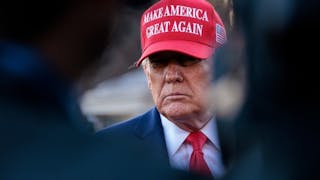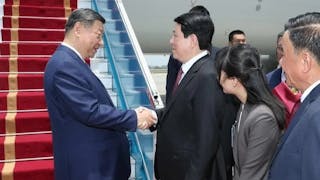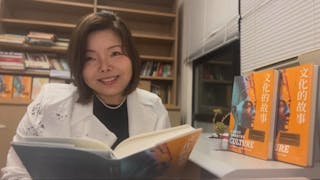香港候任行政長官李家超5月30日前往北京接受任命,以及他為7月1日起的特區新政府遴選主要官員,對京港關係具有重要意義。
5月30日,李家超在北京會見習近平主席。習近平肯定李家超「愛國愛港,立場堅定,敢於擔當,積極作為,在不同崗位上都履職盡責,為維護國家安全和香港繁榮穩定作出貢獻」。因此,「中央對李家超充分肯定和信任」。
習近平表示,新的選舉制度對於落實「愛國者治港」;保障香港市民行使當家作主權利;推動形成社會各階層、各界別齊心協力建設香港良好局面都發揮了決定性作用。這是一套符合一國兩制方針;符合香港實際;符合香港發展需要的政治制度、民主制度,必須倍加珍惜,長期堅持。習近平補充說,中央全面準確貫徹一國兩制方針的決心從沒有動搖,更不會改變。
習近平:香港處於「由治及興」的關鍵時期
最重要的是,習近平評論說,香港已實現「由亂到治」的重大轉折,「正處在由治及興的關鍵時期」。因此,他相信新一屆特別行政區政府施政一定會展現新氣象,香港發展一定會譜寫「新篇章」。
習近平的重要講話表明,李家超為維護國家安全所作的貢獻,得到了中央領導的充分肯定和信任。言下之意,《基本法》23條本地立法必須盡快完成,而新的網絡安全法將諮詢公眾並制訂,將與《香港國安法》一起維護北京在香港特別行政區的國家安全。
2020年6月下旬《香港國安法》頒布實施後,「由亂到治」的過程已經完成,但現階段香港的發展要由「治」向「興」轉變,以促進香港特別行政區的繁榮。因此,習近平的講話解釋了李家超為何被選為下一任香港特別行政區行政長官,因為李家超肩負着未來5年「由治及興」的「第二次」轉變的重任。
習近平關於堅持一國兩制的講話,對京港關係具有重要意義,這意味着香港人應該對中央對保持香港繁榮穩定的承諾充滿信心。這一中心思想與以一國兩制解決台灣前途問題的戰略是一致的。一旦香港局勢穩定下來,尤其是在即將在10月到來的中共20大之後,我們可以期待北京會將注意力集中在台灣問題上。
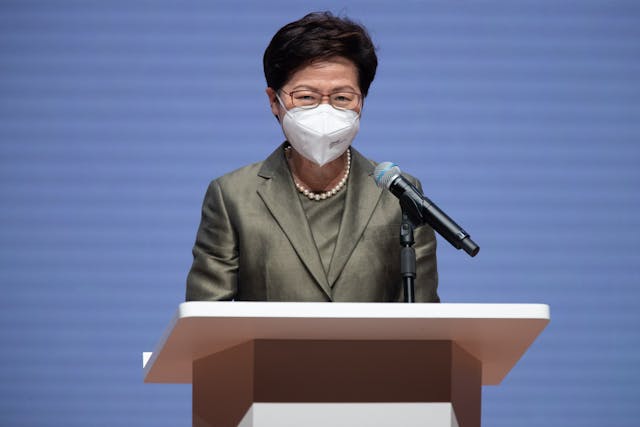
林鄭月娥:普選特首仍可循序漸進
一些香港人將習近平關於長期堅持新選舉制度的的言論,解讀為香港的民主派不應推動普選。不過,5月31日,行政長官林鄭月娥表示,雖然新的選舉制度必須堅持下去,但她提醒傳媒注意,根據《基本法》第45條,仍可循序漸進、按照實際情況實施行政長官普選的目標。她還提醒傳媒,香港以往的選舉制度未臻完善,令一些「不愛國」或「勾結外部勢力」的人可通過選舉進入政治體制,造成破壞。
客觀地說,習近平所說保證愛國者在立法會中佔主導地位的新選舉制度,將不得不堅持下去,但對於普選行政長官,他沒有具體說什麼。因此,習近平的講話被香港一些傳媒過度解讀了。
國務院總理李克強在接見李家超時發表了講話。首先,李克強呼應習近平的說法,指中央中央政府將一如既往全面準確、堅定不移貫徹一國兩制、港人治港、高度自治的方針。第二,李克強響應習近平,表示堅定落實「愛國者治港」,體現了對新選舉制度的堅持。第三,李克強補充說,中央政府始終是香港戰勝各種困難和風險挑戰的堅強後盾。第四,李克強希望香港新一屆政府「廣泛團結香港各界人士」、「積極回應社會關切」,「不斷提升治理效能」。五是希望香港發揮傳統優勢,鞏固提升國際金融、航運、貿易三大中心地位,加快打造國際創新科技中心,提升綜合競爭力。第六,他希望香港繼續防控好疫情,改善民生,讓香港市民過上更加幸福美好的生活。
李克強的講話對京港關係具有重要政治意義。他首先呼應習近平治港的大原則。李克強談到了具體的政策問題,其中大部分是李家超在競選政綱中提及的,特別是如何提高香港的競爭力,提高治理能力和改善民生。李克強的講話觸及了李家超的政策計劃的實質。李克強希望香港新政府能夠團結市民和回應社會,意味着中央從7月1日起將特別關注李家超新政府的組成。
5月31日,李家超與國務院港澳辦主任夏寶龍會面,雙方就香港特區政府的組成交換了意見。5月31日下午,李家超回港後對傳媒表示,他挑選管治班子的人選,將視個人能力、經驗、抱負、承擔和施政理念而定。對於這批新司局長的具體細節,李家超表示,他會盡快完成有關工作,再作出公布。李家超一方面要揀選司局長,另一方面要含蓄地徵求中央的意見,向中央作出提名,由中央決定任命。
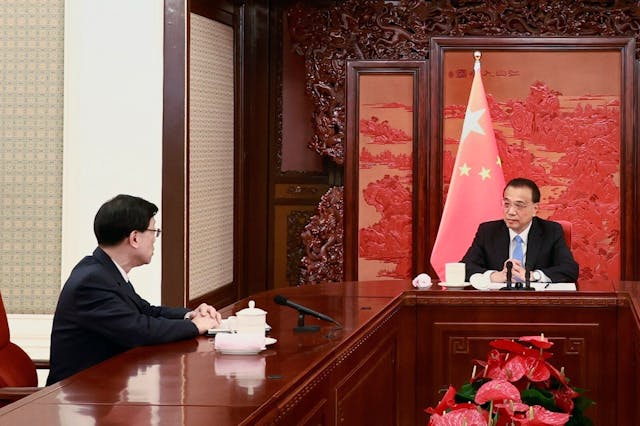
陳國基獲北京信任或掌政務司
6月2日,香港傳媒報道陳國基有望出任李家超政府下一任政務司司長。陳國基於2011年至2017年擔任前入境事務處處長,並自2017年7月起出任行政長官辦公室主任。最重要的是,陳國基在2020年6月獲委任為香港特別行政區維護國家安全委員會(港區國安委)秘書長。他在安全相關工作方面的豐富經驗,以及與內地當局密切的工作關係,使他成為政務司司長的有力人選。本地傳媒又猜測,陳茂波可能會繼續擔任財政司司長。
另一方面,內地主管港澳事務部門安排了新的人事任命。港澳辦副主任張曉明調任全國政協副秘書長。福建省出生的原福建省副省長、澳門中聯辦副主任鄭新聰出任澳門中聯辦主任。因此,人事變動不僅發生在香港的領導層,也發生在內地主管港澳事務的主要官員身上。
控制疫情內地與港通關指日可待
總的來說,李家超此次北京之行表明,在中央領導層充分信任和支持候任行政長官的同時,預計他將與中央協商提名一大批主要官員。習近平主席和李克強總理就香港問題發表的言論具有政治意義。在習近平肯定一國兩制和維護「愛國者治港」原則,堅持新選舉制度的同時,李家超新政府將提升香港的競爭力、改善民生和治理能力。
習近平有關香港正由「治」及「興」關鍵階段的表述具有重要的政治意義,因為李家超新政府領導下的香港,不僅要堅持維護國家安全,更要提升治理和改善民生,令受到疫情削弱的香港經濟恢復繁榮。如果疫情真的在香港得到控制,內地與香港通關便是指日可待。
From John Lee’s Beijing visit to the selection of principal officials
The visit of Hong Kong Chief Executive-designate John Lee to Beijing on May 30 and his selection of principal officials for the new government of the Hong Kong Special Administrative Region (HKSAR) starting from July 1 have significant implications for Beijing-Hong Kong relations.
On May 30, John Lee met President Xi Jinping in Beijing. President Xi affirmed that Lee “has a firm position on loving the nation and Hong Kong,” that he is “active and willing to shoulder the responsibility,” and that he “contributes to the protection of national security and Hong Kong’s prosperity and stability.” As such, the central government “fully affirms” Lee’s work and “fully trusts” him.
President Xi remarked that the new electoral system allows Hong Kong to implement the principle of “patriots governing Hong Kong,” to protect citizens to have the right of being the “masters,” and to promote each social stratum and sector to play a “decisive role” in building up Hong Kong. Therefore, the “democratic system” in Hong Kong should be cherished and persisted in the long run, for it is suitable for Hong Kong’s circumstances and developmental needs. Xi added that the center “comprehensively” and “unwaveringly” implements the principle of “one country, two systems.”
Most importantly, President Xi commented that Hong Kong has already realized the important transition from “chaos to governance,” and that the HKSAR is now “at a crucial juncture from governance to emergence.” Hence, the President believes that the new HKSAR government will mark a “new chapter” in the city’s development.
President Xi’s significant remarks showed that John Lee is fully appraised and trusted by the central leadership for his contributions to the protection of national security. Implicitly, Article 23 of the Basic Law must be legislated locally soon, while a new Internet Security Law will be prepared and enacted to work alongside with the national security law to protect Beijing’s national security in the HKSAR.
After the promulgation and implementation of the national security law for Hong Kong since late June 2020, the process of turning “chaos” to “governance” was completed, but the current stage of Hong Kong’s development has to transform “governance” into “emergence” so that the HKSAR’s prosperity will be fostered. Hence, President Xi’s remarks explained why John Lee was chosen as the next Chief Executive of the HKSAR, as Lee is shouldering the important responsibility of the “second” transition from governance to prosperity in the next five years.
Xi’s remarks on the persistence of “one country, two systems” are important for Beijing-HKSAR relations, meaning that the people of Hong Kong should be confident about the center’s commitment to the stability and prosperity of the HKSAR. This central intention is in line with its strategy of using the Taiwan model of “one country, two systems” to deal with the question of Taiwan’s future in the coming years. Once Hong Kong’s situation is stabilized, we can expect Beijing to focus its attention on the Taiwan issue, especially after the Congress of the Communist Party of China in the coming October.
Some Hong Kong people interpreted President Xi’s remarks on the persistence of electoral system as saying that the Hong Kong democrats should not push for universal suffrage. However, on May 31, Chief Executive Carrie Lam said that while the new electoral system will have to be persisted, she reminded the media of Article 45 of the Basic Law on the selection of the Chief Executive by universal suffrage. She also reminded the media that the previous electoral system in the HKSAR had allowed “unpatriotic” people to sneak into the legislature, and that they “conspired with foreign forces” to disrupt the Hong Kong polity.
Objectively speaking, President Xi said that the new electoral system, which guarantees the dominance of patriotic elites in the Legislative Council, will have to continue. But he did not really say anything about the election of the Chief Executive by universal suffrage. As such, the President’s remarks were overinterpreted by some media in Hong Kong.
When John Lee met Premier Li Keqiang, the premier made some comments. First, Premier Li echoed President Xi in saying that the center persists in accurately implementing the principles of “one country, two systems” and “a high degree of autonomy” for the HKSAR. Second, echoing President Xi, Premier Li said the principle of “patriots ruling Hong Kong” should be resolutely implemented, implying the persistence of the new electoral system. Third, Premier Li added that the center is an important shield for Hong Kong’s challenges and difficulties. Fourth, Premier Li hoped that the new government of the HKSAR will “comprehensively unite people from various sectors” and that it will be “responsive to the societal concerns” and “continuously improving its governing capability.” Fifth, Li hoped that Hong Kong will maximize its traditional strengths and elevate its competitiveness by consolidating the status of monetary and financial center, aviation and trade, and building up an innovation and technology centers. Sixth, he hoped that Hong Kong will control Covid-19 well and improve the people’s livelihood so that the well-being of the people will be better.
Premier Li’s remarks are politically significant for Beijing-HKSAR relations. He firstly echoed President Xi’s broad principles of governing Hong Kong. Li spoke to the concrete policy issues, most of which were discussed in John Lee’s campaign platform, especially on how to increase Hong Kong’s competitiveness and improve governing capability and the people’s livelihood. The Premier’s remarks went to the substance of John Lee’s policy plans. Li’s hope on the new government’s ability to unite the people and be responsive to the society meant that the central authorities paid special attention on the line-up of John Lee’s government from July 1 onwards.
On May 31, Lee met Xia Baolong, the Director of the State Council’s Hong Kong Macau Affairs Office. Both exchanged views on the formation of the HKSAR government. Once Lee returned to Hong Kong on the afternoon of May 31, he told the media that the selection of his governing team will depend on individual ability, experiences, vision, responsibilities and policy ideas. For the details on the batch of new ministers, John Lee said that he will make an announcement when all the procedures are completed. Implicitly, Lee has to select the ministers on the one hand and to seek the views, support and endorsement of the central authorities on the other hand.
On June 2, the Hong Kong media reported that Eric Chan Kwok-ki was tipped to be the next Chief Secretary for Administration under the John Lee government. Chan was the former Director of Immigration from 2011 to 2017 and has been the Director of the Chief Executive’s Office since July 2017. Most importantly, in June 2020, Chan was appointed as the Secretary General of Committee for Safeguarding National Security of the HKSAR. His rich experiences in security-related work and close working relationships with mainland authorities made him a strong candidate for the position of the Chief Secretary. The local media reports speculated that Paul Chan will likely remain as the Financial Secretary.
On the other hand, the mainland side handling Hong Kong and Macau affairs envisaged new personnel appointments. While the deputy director of the Hong Kong Macau Affairs Office, Zhang Xiaoming, was sent to be the deputy secretary of the Chinese People’s Political Consultative Conference, Zheng Xincong, a Fujian-born official and the former party secretary of Fujian, was appointed as the new Director of the Macau Liaison Office. Hence, personnel changes are occurring not only in the HKSAR leadership but also the leading mainland officials managing Hong Kong and Macau affairs.
In conclusion, John Lee’s visit to Beijing showed that while the central leadership fully trusts and supports the Chief Executive-designate, he is expected to nominate a strong batch of principal officials in consultation with the central authorities. The remarks made by President Xi and Premier Li on Hong Kong are politically significant. While President Xi affirms the continuation of the “one country, two systems” and the new electoral system that safeguards the principle of “patriots ruling Hong Kong,” Premier Li is interested in the specifics of how Hong Kong’s competitiveness, citizens’ livelihood, and governing capability will be enhanced. President Xi’s comment that Hong Kong is entering the crucial stage of turning “governance” to “emergence” is politically significant, for the HKSAR under the new leadership of John Lee is expected to persist in not only the protection of national security, but also the improvement of governance and the people’s livelihood and the restoration of economic prosperity in Hong Kong where Covid-19 is weakening. If Covid-19 is really under control in the HKSAR, the opening of the mainland border with Hong Kong will be a matter of time.
原刊於澳門新聞通訊社(MNA)網站,本社獲作者授權轉載。



